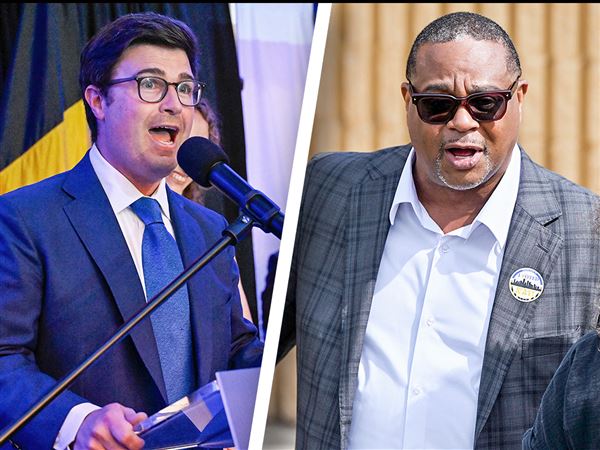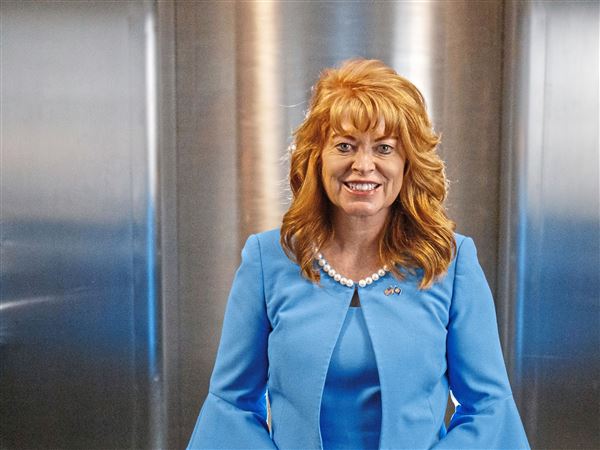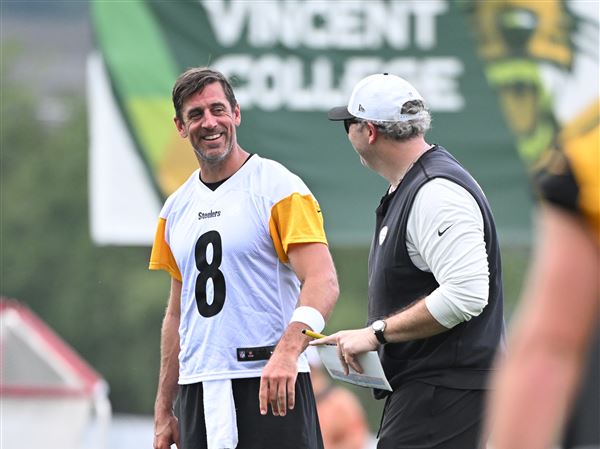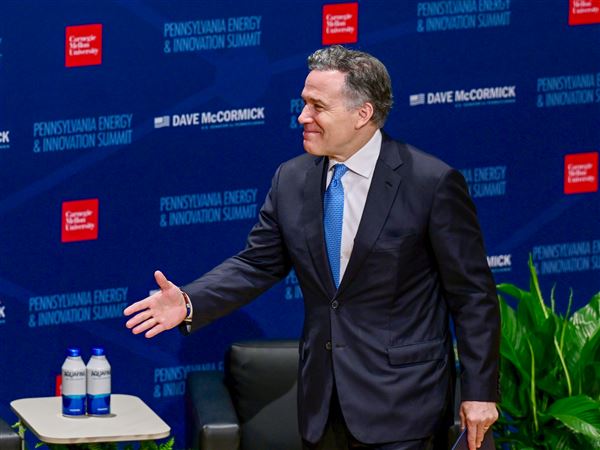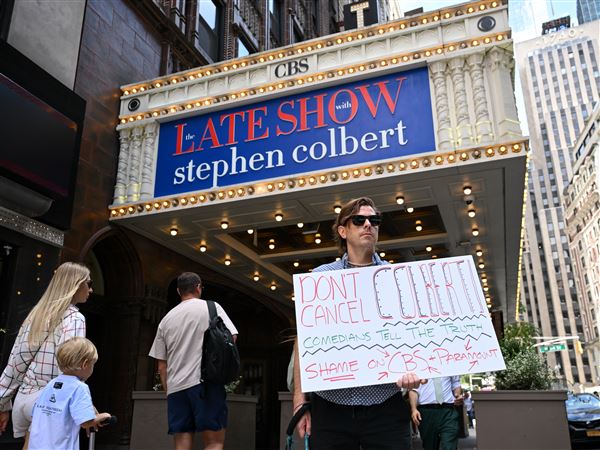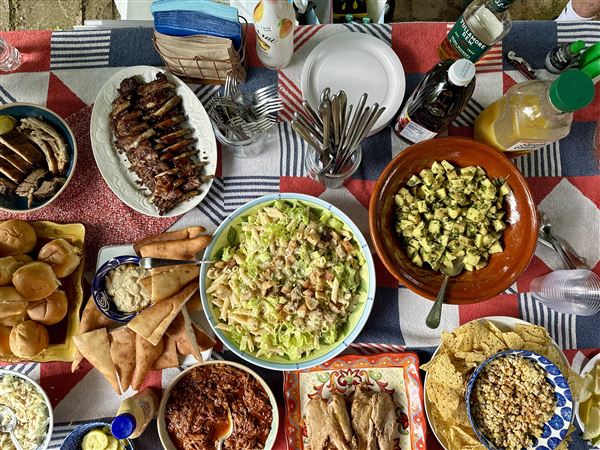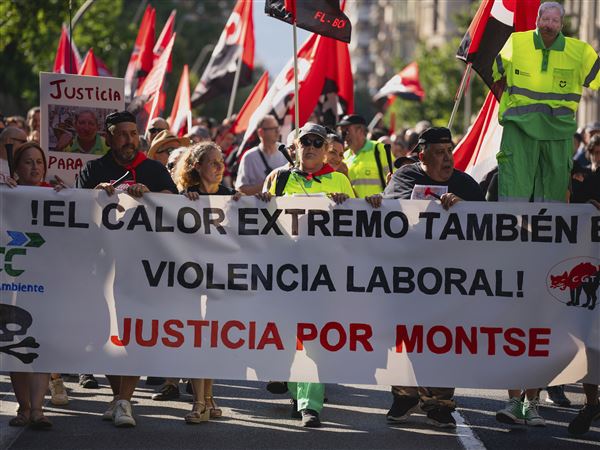Does it say anything about our society that millions of bargain hunters would spend much of Thanksgiving Day -- a holiday meant for reflecting on the bountiful blessings of Divine Providence -- camped instead outside discount stores to jockey for the 5 a.m. Friday rush-for-stuff?
Does it say anything about our society as a whole that police had to be called to the Wal-Mart in Valley Stream, N.Y., at 3:30 a.m. to try to restrain the crowd and restore order? That minutes before 5 a.m., the crowd shattered the glass doors, trampled several store employees and crushed one to death?
It says, in part, that as enlightened and highly evolved as we like to think we are, modern Americans are not any better than the people who preceded us through history.
But the horrible death that gave "Black Friday" a meaning beyond mere retail profits should also tell us we need, collectively, to take a deep breath and do a little thinking. After all, a New York Wal-Mart isn't the only place where hysterical mobs are wreaking havoc.
"Men, it has been well said, think in herds; it will be seen that they go mad in herds," promised Charles Mackay in his 1842 preface to "Extraordinary Popular Delusions and the Madness of Crowds."
From German witch hunts to French bank riots over fraudulent "Mississippi stocks," Mackay catalogued episodes of mass irrationality and warned that while men "go mad in herds ... they only recover their senses slowly, and one by one."
How slowly? Even after learning the Wal-Mart was being closed because someone had been killed, some shoppers refused to leave. "People were yelling, 'I've been on line since yesterday morning.' They kept shopping," noted one person, who said the crowd acted like "savages."
We can only hope that once they were forced from the store, they eventually experienced deep shame, one by one, over their flippant reaction to a death they'd caused en masse.
It's a good sign, if grimly paradoxical, that Americans kept shopping Friday -- not in callous defiance of the early morning tragedy, but in sober defiance of the recent craziness on Wall Street.
We do need to take a hard look at our shallow consumerist ways, but we can't quit cold turkey at Thanksgiving. When the whole economy and civil order are at stake, there's nothing worse than responding to mass irrationality with mass over-reaction.
Wall Street has always been prone to herd-like thinking; however, its gyrations can trample millions of innocent bystanders. Former Federal Reserve Chairman Alan Greenspan termed the mid-'90s stock market boom a product of "irrational exuberance." Surely what we've seen the past few weeks has been "irrational helplessness," and the results are devastating.
As Charles Krauthammer noted in his (Black) Friday column, the market truly tanked on Thursday, Nov. 20, its decline led by banks "whose balance sheets did not change between Tuesday and Wednesday" but whose traders wanted a bigger bailout. In this even less rational world, the whims of one political appointee, interpreted into one hour's trading, can eradicate years of pension savings for countless retirees.
In 1842 Mackay recounted market manias that predate America's founding and noted: "Sober nations have all at once become desperate gamblers, and risked almost their existence upon the turn of a piece of paper." Today, that paper is a congressional license to dispense money we don't even have.
After weeks of such lurches, many Americans -- wiser than either Wall Street or Capitol Hill -- gave thanks on Thursday and went shopping Friday without causing any destruction at all. "Cautious," the media called it, but the results were 3 percent better than last year.
The profiteers have already moved to reap rewards from the tragic Wal-Mart melee. A police official declared the store's security inadequate, so lawsuits can't be far behind. A union official deplored the lack of employee protections at the nonunion retailer and demanded an investigation of the "avoidable" death. This is the American way, and like the shopping, it's ironically reassuring.
In 1939, as World War II loomed, the British government commissioned a series of posters to buck up public spirit. Never officially issued, few were actually printed, but one turned up recently in an auction of old books. It reads, "Keep Calm and Carry On." Suddenly, in a new age, it's all the rage -- posters and T-shirts have become hot items.
"Keep calm and carry on." If we didn't, then all systems would fail. And then we'd see what universal madness looks like.
First Published: December 1, 2008, 5:00 a.m.
